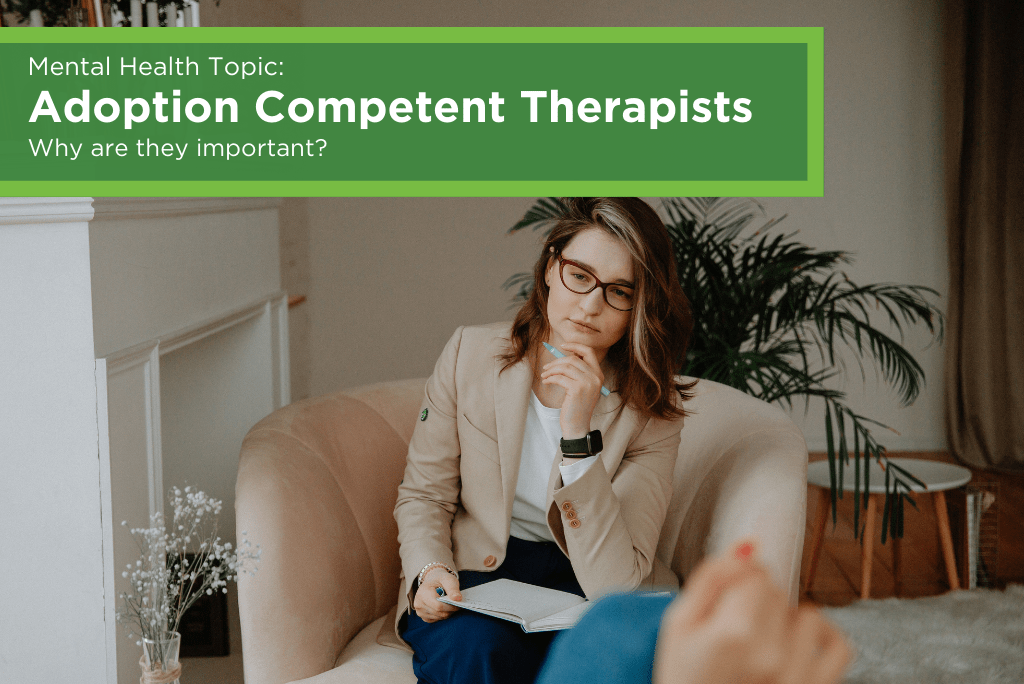Adoption is a rich and rewarding path to building a family, but it also comes with unique challenges and roadblocks. Whether you are a birth parent, an adoptee or an adoptive parent, you should not face these difficulties alone. An adoption-informed therapist can provide crucial help and support to individuals and families struggling with grief and loss, attachment, identity development and emotion regulation. They are skilled at working with common mental health challenges like anxiety and depression but also understand the context of the problem, treating the root along with the symptoms. They work collaboratively with occupational therapists, doctors, physical therapists and teachers, and they are curious about sensory needs. They can support birth mothers through unresolved grief and loss, guide adoptees in search and reunion and coach adoptive parents on ways to manage their child’s behavior while also increasing connection.
How will you know your therapist is adoption-competent? Start by asking these five questions:
Do you treat parents and children together? Adoption therapists know that working with the entire family increases their connection, instills a sense of joy and play and establishes a feeling of safety. An adoption therapist also knows that treatment once a week has limits while a parent who provides daily structure, routine and nurturing can make the biggest strides toward healing a child. An adoption-competent therapist understands trauma and how it is related to adoption across the adoption triad. A child adopted at birth or soon after can suffer the effects of complex developmental trauma. A competent therapist will know the symptoms and signs along with directive family-based interventions.
How do you work with attachment? Therapists who work in adoption are trained in attachment-based therapies like Theraplay or Dyadic Developmental Psychotherapy. More importantly, they use it as a lens for treatment whether they are working with young children and their families, birth parents or adult adoptees. Attachment and attachment styles are the building blocks of relationships. Adoption therapists increase children’s ability to attach while also supporting adults as they identify ways their own attachment styles create conflicts and get in the way of healthy partnerships.
What is your experience with transracial families? Adoption therapists are comfortable having uncomfortable conversations. They talk openly about race and facilitate painful conversation. They regularly work with children who are confused about their own identities, who wish they looked like their parents and struggle to find a place of belonging. They also challenge parents who deny their children’s experiences of racism because it hurts them too much to acknowledge it, causing even more harm. Adoption therapists actively explore race, class and privilege and encourage accountability.
Have adoption practices changed over the past decade? Adoption has changed dramatically over the past 50 years. Open adoptions are more common and DNA testing and the internet have made search and reunion more easily accessible. Adoption therapists don’t just live in adoption as it exists today. They understand that the legacy of secrecy in adoption still lingers, and they work against that legacy, creating safe spaces for birth parents and adoptees to process their grief and loss free of judgement and shame.
What defines success? Adoption impacts adoptees, adoptive parents and birth parents in different ways throughout their lifespans and developmental stages. An adoption therapist may work successfully with a six-year-old on his emotional regulation and then see that six-year-old again when he hits adolescence. An adoption therapist can define success as not only addressing a specific issue but also by managing expectations, keeping the door open for more treatment, as needed. Success should also include community. Adoption can be isolating. Success is connection—birth mothers can heal with other birth mothers and adoptees can find a true sense of belonging when they are, finally, standing in a room with other people just like them.






